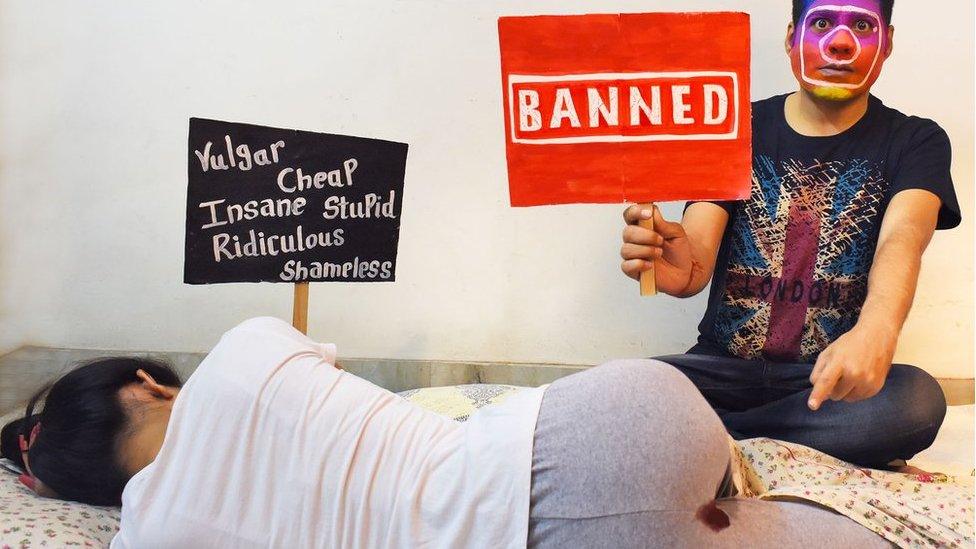Kerala: Why are Indian men screaming with period pain?
- Published
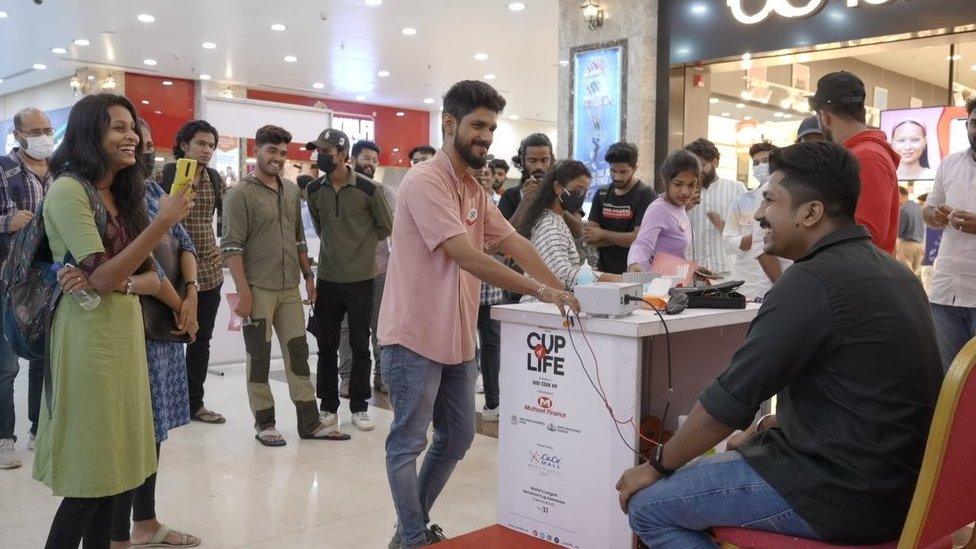
The pain simulator has been set up in malls and colleges in Ernakulam district
Menstruation - and the discomforts that come with it - is still a taboo topic in many parts of India.
But a campaign in the southern state of Kerala is aiming to change that. The initiative's organisers are taking menstruation simulators to malls and colleges in Ernakulam district to let men experience period cramps, in a bid to normalise conversation around the subject.
A recent video from the campaign showed men wincing and screaming in pain as women watched on, amused.
"That was really painful. I never want to experience that ever again," says Sharan Nair, a social media influencer who tried the simulator at a mall.
The simulator is part of a project called Cup of Life that aims to distribute free menstrual cups and bust myths around periods. It has been launched by local lawmaker Hibi Eden from the Congress party along with the Indian Medical Association (IMA), which represents doctors.
Allow Instagram content?
This article contains content provided by Instagram. We ask for your permission before anything is loaded, as they may be using cookies and other technologies. You may want to read Meta’s Instagram cookie policy, external and privacy policy, external before accepting. To view this content choose ‘accept and continue’.

Women's health, especially issues related to menstruation, is an under-discussed topic in India. In many areas, women are still considered impure when they menstruate, and kept away from social and religious events, and even the kitchen.
While this attitude has changed a little in urban areas, most women still don't feel comfortable discussing their period or the intense cramps that often accompany it with their employers or even male family members. While some companies around the world and in India have begun offering period leave, it is often a polarising topic.
But the campaign's organisers are hopeful they can spark a change in Kerala, considered one of India's most progressive states.
Lawyer Sandra Sunny, who designed the #feelthepain event, says the simulator is the "easiest way" to encourage meaningful conversations and change such attitudes.
"If you ask college boys directly what they know about period cramps, they'd be reluctant to talk. But if you ask them questions like - 'have they talked about periods with anyone, what makes them reluctant to talk about it' - after using the simulator, they are more forthcoming," she says.
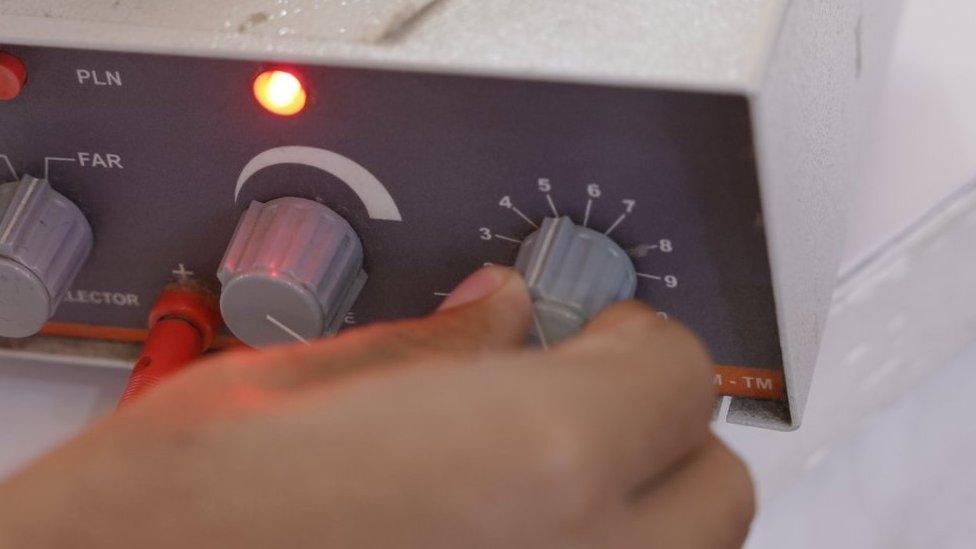
The simulator has a dial that can turn up the pain level from one to 10
The simulator has two wires that can be attached to two people at the same time and a dial that can turn up the pain level from one to 10.
Mr Nair remembers that the girls who tried it "felt nothing" while "the guys, including me, were hollering and bringing the place down".
The organisers say that the simulator sparked frank discussions at colleges in Ernakulam district.
A couple of male students who tried the simulator out at a private college said they could barely stand the pain. "They reacted immediately, saying, 'switch it off!'," Zeenath KS, one of the student organisers, told the BBC.
That is a pretty common reaction, says Dr Akhil Manuel, joint secretary of the local chapter of the IMA and coordinator of the Cup of Life campaign.
"Women don't even flinch at [level] nine while the men find it hard to make it past four, even though the simulator only transmits 10% of the actual pain," he says.
Ms Sunny says that the simulator helps men understand just how debilitating it is to experience such severe pain for years: "For them it's a machine so they can pause it. But we can't."
This isn't the first time period pain simulators have made Indian men scream. Last year, two non-profit organisations used it at a period-themed carnival in northern India. Since then, they have been used at workshops to familiarise people, particularly men, with menstruation.
"The simulator was simply a hook to break the ice and help people get into the conversation," says Dr Manuel.
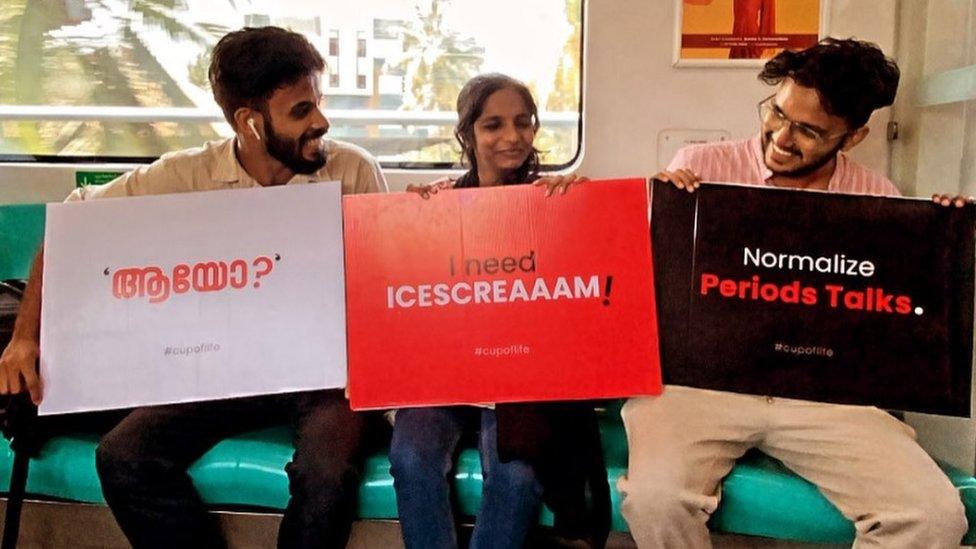
The simulator is part of a larger awareness campaign on menstruation
The idea is not unique. In July, a Canadian period product company, Somedays, encouraged men to use the simulator as an exercise in building empathy. Tiktok videos from these events have since garnered millions of views.
Mr Eden says the idea for a district-wide campaign came up after he started an initiative to donate thousands of free menstrual cups to women in a village called Kumbalangi. Earlier this year, Kerala's governor declared Kumbalangi India's first sanitary pad-free village.
The Cup of Life campaign, which began four months ago and organised a number of activities, ends on Wednesday with the distribution of 100,000 menstrual cups in a bid to create a world record.
But Mr Eden says the larger purpose is to generate open discussions and create a healthy, progressive attitude towards menstruation.
Dr Manuel says many lawmakers and organisations across the country have expressed interest in the campaign and asked for ways to replicate it in their communities. But he has a caveat.
"You need to work with the community, understand how it works and then find pathways within their structure that will help you have this conversation."

Read more India stories from the BBC:

- Published17 August 2022
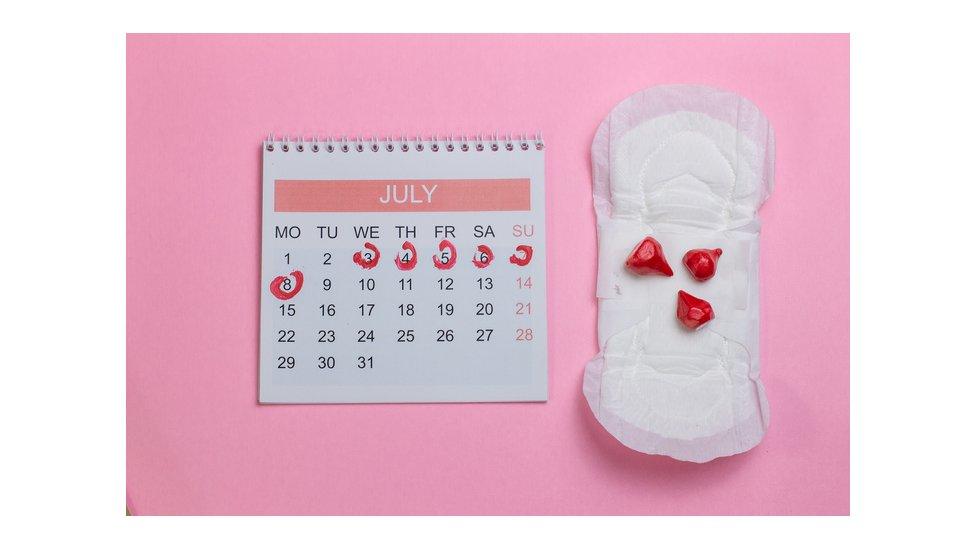
- Published8 August 2021
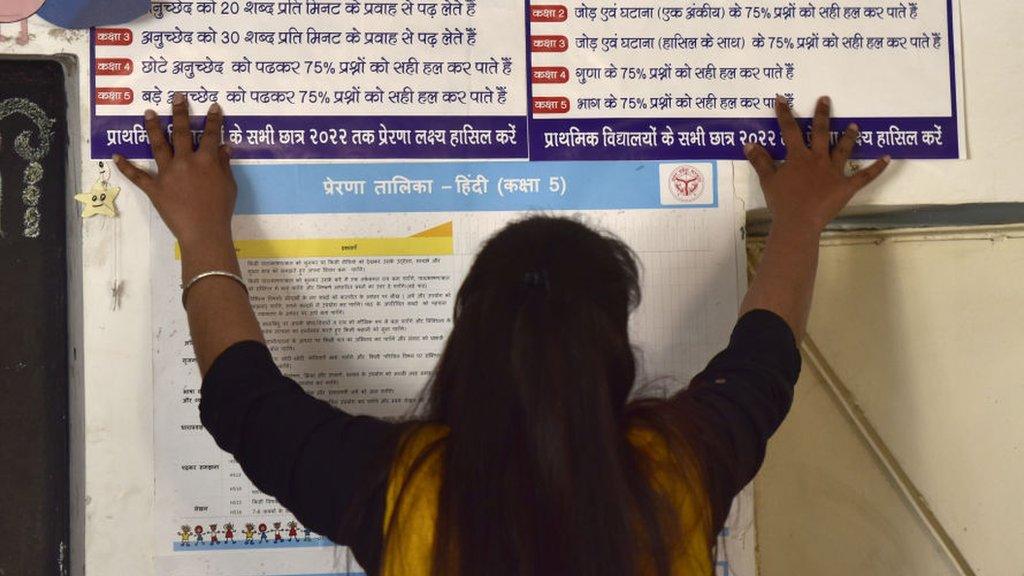
- Published28 May 2020
